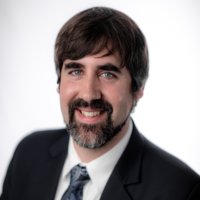
Christoph Hoog Antink
Biomedical Engineering (KIS*MED), TU Darmstadt, Germany
Title of Talk
“Sensor Fusion and Machine Learning for Multimodal Physiological Sensing”
The ever-increasing progress in sensing technologies and novel machine learning approaches promises great advances in ubiquitous, unobtrusive health monitoring. However, many state-of-the-art machine learning techniques exhibit an unquenchable hunger for data, which is obviously difficult to satisfy in the case of non-established sensing technologies. To overcome this, two main approaches come to mind: one is the integration of model knowledge into the machine learning approaches themselves to improve data fusion, the other is the synthesis of multimodal artificial data to train or pre-train existing concepts. This talk will focus on the later aspect by presenting two synthesis approaches, one based on a dynamic system and one based on a statistical approach.
Speaker Bio
Prof. Dr.-Ing. Christoph Hoog Antink was born in Lohne (Oldenburg), Germany. He obtained a M.S. degree in mechanical engineering from the University at Buffalo, Buffalo, New York in 2011. He also holds a Dipl.-Ing. (2012) and a Dr.-Ing. (Ph.D., 2018) degree in electrical engineering from the RWTH Aachen University, Aachen, Germany. From 2018 to 2020 he was heading the Medical Signal Processing Group at RWTH Aachen University’s Medical Information Technology. In 2020, Christoph Hoog Anting was introduced to the Young Scholars of the North Rhine-Westphalian Academy of Sciences. Since 2021 he is an assistant professor (tenure track) for biomedical engineering at TU Darmstadt where he is heading KIS*MED. His research interests include artificial intelligence in medicine, unobtrusive sensing of vital signs, and sensor fusion.
Photo ©AWK NRW/ Andreas Endermann